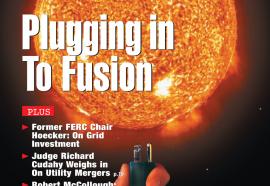CIS: Middleware Mashup: Smart Grid and the Back Office
Utilities are learning how smart-grid data will interface with CIS and other back-office systems. Meters and middleware are rapidly evolving in this brave new world.
The manager of technology services for Phoenix-based Salt River Project (SRP) is tasked with implementing a revolutionary process for one of the most progressive public power utilities in the country. Specifically, he is working to integrate data from SRP’s smart meters (140,000 and counting) into the utility’s back-office processes—particularly customer service and billing.










